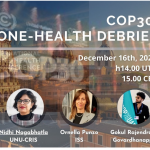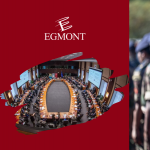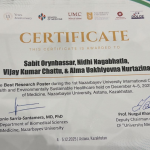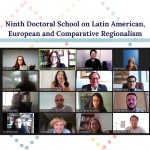Recap: Ninth Doctoral School on Latin American, European and Comparative Regionalism
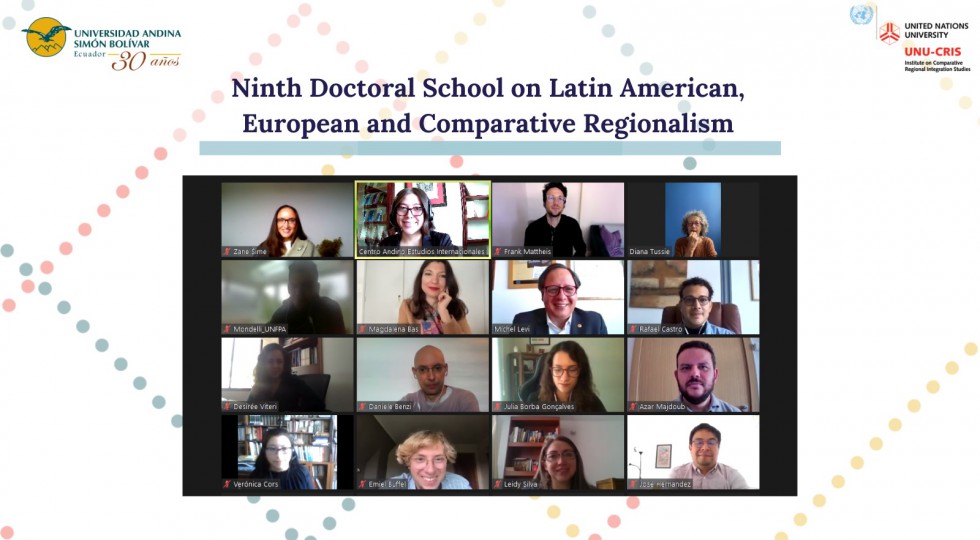
A Group Photo from the Ninth Doctoral School on Latin American, European and Comparative Regionalism 2021.
Held virtually from from 20-24 September 2021, the Ninth Doctoral School on Latin American, European and Comparative Regionalism saw the convergence of early-career researchers and world-class experts to spark new linkages within the dynamic realm of regionalism. From healthcare to trade and from digitisation to politics - the school comprised a series of lectures and tutorial sessions by leading experts on the regional developments shaping the 21st century.
Hosting participants from across the world, the bi-lingual (English-Spanish) school was co-organised by UNU-CRIS and Universidad Andina Simón Bolívar Sede Ecuador to benefit doctoral students and other academics in various stages of their research projects based at universities across Latin America and beyond.
The Week Included Discussions on the Impact of and Recovery Pathways for Covid-19.
This year’s edition included lectures by experts like Diana Tussie, Fredrik Söderbaum, Philippe De Lombaerde, José Briceño Ruiz, Andrea Ribeiro Hoffmann, Magdalena Bas, María Belén Herrero, William Sacher, Jamal Shahin, Luca Belli, Orsolya Gulyás, Frank Mattheis and Michel Levi.
Using examples from Europe and Latin America, the sessions included, but were not limited to, discussions on:
- The building blocks of Latin American, European and Comparative Regionalism
- The approaches towards mainstreaming regional integration and regionalism
- The focal points of regional cooperation and collaboration
- The linkages between digitisation and governance
- The various facets of multi-level governance
- The influence and recovery pathways related to Covid-19 in Latin America
From healthcare to trade and from digitisation to politics - the school comprised a series of lectures and tutorial sessions by leading experts on the regional developments shaping the 21st century.
Making the most of the learning environment, the doctoral school also included virtual tours of Bruges and Quito.
We thank our partners, experts and participants for their unmatched support and collaboration throughout the school and look forward to welcoming a new batch of curious and enthusiastic participants in our next edition.

